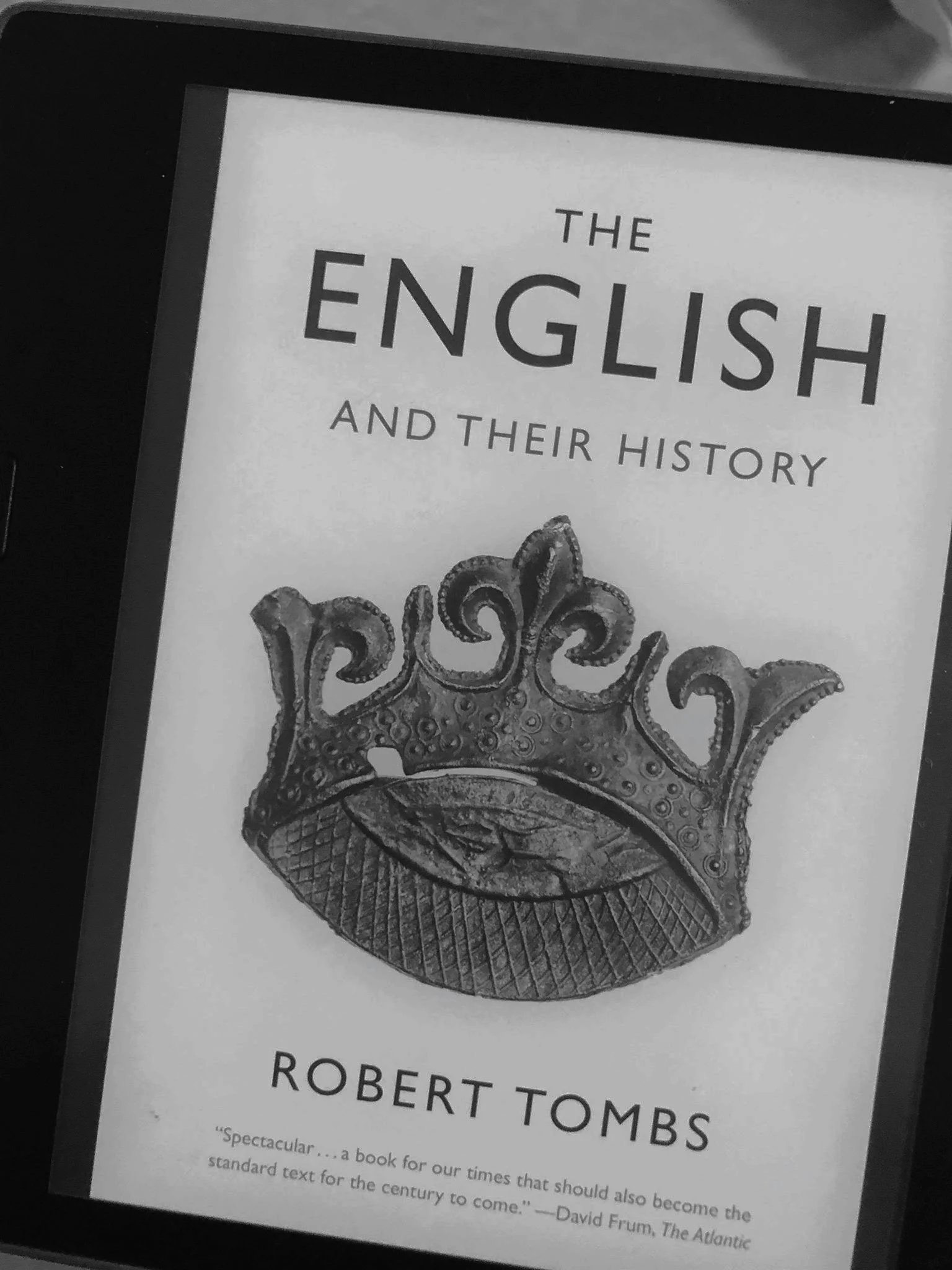The English and Their History by Robert Tombs
English History, not Britain, just England.
At a time when the divorce of the United Kingdom seems ever more likely, any endeavor to write a history of England, isolated from that of Northern Ireland, Scotland, and Wales, is bound to be interpreted as a contentious political statement. Any attempt to accentuate the English culture appears snobbish. Any effort to highlight the English way that has been radically different from its Continental neighbours, risks adding ammunition to the vociferous campaign to draw lines between England, the other British Isles, and the rest of Europe.
This is why a book solely about English History is so hard to come by.
I’m glad to have discovered this monumental work of Robert Tombs, an analysis not of Britain, or the British Isles—but purely of the English. This book salutes a wide-ranging history that explores the enigma at the heart of a nation. Yes, it is a work of history, and thus of narrative. This book does, however, try to make memory and its creation an inherent part of the story. Each of the seven sections of this book includes narrative chapters along with a chapter reflecting on how the events has been remembered and represented. Tombs integrated transnational comparisons and illustrates that English history and identity merit examination apart from their British perspective.
Tombs reviewed conventional beliefs about the past such as the Anglo-Saxon liberties, the common law, the influence of Magna Carta, and the cause and effect of the Industrial Revolution. Fast forward to more recent times, Tombs examined the ambiguities and aftermath of the Victorian age at the reasons for participating in the First World War, and the divided memories of that calamity; and indeed, he discussed the Second World War tradition and its legacy.
In this book, certain memory themes predominated, and the connection of these themes created an arc of rise and fall of England: the contradictory outcome of the prolonged legacy of the Norman Conquest; the interpretation of the Civil War era and its ramification into a Whig history of progress; the paradoxical legacy of empire; and the myth of England and Britain as nations in decline. When it comes to imperial predation, I was disappointed with Tomb’s jarring tendency to minimize the damages and exaggerated the benefits of colonialism. But I’ll address that later.
Back to topic. Tombs believed that the Norman Conquest proved to be more blessing than curse. Though the catastrophic Norman invasion annihilated just about all of England’s ruling class, it helped English as a whole dodged the further invasion and the constant conflict between the omnipotent barons that ailed most of continental Europe. As for the Civil War, Tombs wasn’t beguiled by the so-called legitimacy, he considered the Civil War as unnecessary, it may be that the English unwittingly drifted into it after they left the Reformation half-done, and prior to them gathering a scattered empire. Similarly, the English blundered into alienating and lost the American colonies.
Overall, Tombs demonstrated a flawless mastery of political, economic, social and cultural history, while even-handed in ideological terms, he offers robust judgments and sonorous prose. I appreciated how inclusive this book is. Readers get the full course including the Romans, Saxon invasions, Viking invasions, the Norman Conquest, Magna Carta, the wars of the Roses, the Reformation, the Civil War, the Restoration, the Revolution and so on. Tombs has this great eye for the interesting details and a British sense of humour. However, here come the parts where I’m not so impressed. Whenever it comes to the rise of the British Empire and imperial devastation, Tombs has this tendency to come off as a mealy-mouthed apologist.
Tombs claimed that contemporary critics dismissed the fact that Britain was saving the world with free trade instead of for economic self-interest. That Britain had a unique economic dominance, and through free trade, Britain fostered the economy. And over the whole period in which it operated, free trade “probably” made Britain slightly poorer. He further justified the catastrophe brought by colonization by comparing it to a sacrifice for societal advancement:
“If this was an overall benefit to the world’s economic well-being, there were also those who lost, sometimes catastrophically: peoples whose land was taken for agricultural development, and who went hungry while their countries exported produce – most disastrously, in the Indian famines of the 1870s and 1890s.”
I’m sorry, what shit?
Britain became slightly poorer? This while Britain imposed a Draconian salt policy, enacting laws preventing native Indians from manufacturing salt, forcing them purchase salt from Cheshire, Britain. This while India’s wealth was poured into Britain, and was de-industrialized to become an importer of British-woven cotton. This while the Chinese were lured by Royal Navy and became opium addicts at gunpoint. Too bad, a few million died… but let’s not worry about that. We should all focus on the noble free trade that British colonization brought us, right? In all seriousness, Tombs should spare readers the crap about the generosity of free trade. His tendency to minimize the damages and exaggerate the benefits of colonialism disappointed me. Especially when his other perspectives were all well-thought-out.
All in all, I enjoyed this book and Tomb’s humour. Through this book, I learned quite a few intriguing facts that I never knew. For example, how Magna Carta, the first instrument between crown and the commons with regard to tenancy rights, ultimately become the foundational document which made the concept of parliament possible. However, one needs to note that about half of the book is on the 19th and 20th centuries, a period which most readers are more familiar with than the earlier periods. If you want a refresher with an interesting perspective, this is your book. If you think you might be offended by Tombs attitude towards British colonization and imperial predation, you should opt for another book.



